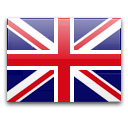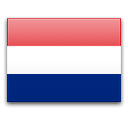Belgium beer
The world is big and beer is brewed in almost every country. Belgium is highly regarded as one of the best beer countries in the world. But how come? And does this have anything to do with the fact that we, The Flying Dutchman NoMad Brewing Company, have also chosen to brew our beers in Belgium?
What is the most famous beer country in the world? It doesn't matter in which country you ask the question. Most people will answer this with Belgium. Also in the Netherlands this is certainly the answer that most people will give. In the Netherlands and also in some of the other countries, one of the reasons is that these were the first beers to be imported. In the Netherlands there were only a handful of breweries in the 1970s and most of them only brewed lager. So the beer landscape had become very boring. In the 1970s, the first pioneers began to import Belgian beer to the Netherlands on a small scale. The Dutch cafes were open to new flavors and started introducing the most famous Belgian beers to a small, selective audience that was ready for innovation. The Belgian beers that were sold at the time were very accessible and not too complex in taste. Belgian beers such as Palm and De Koninck were perfect beers to introduce novice beer explorers to beers with a bit more character than a regular lager. After discovering these amber colored beers, the next step was often a double or a triple, Belgian beers from an Abbey or a real monastery.
Another reason, and of great importance. is of course the very long brewing tradition in Belgium. Every village used to have its own brewery and that was the case in many countries. Drinking water was poor and unreliable so beer was the daily fluid people ingested. In Belgium, many breweries have survived because they received support from the locals who remained loyal to their brands. Old traditions passed from generation to generation. Think, for example, of the gueuze breweries that still exist and have finally come back into the spotlight with a larger audience in the last 10 years. Thanks to the hard work of several generations, this oldest beer style has survived and we can still enjoy beautiful sour Belgian beers.
Trappist beers are highly regarded and thirty years ago there were only 5 Belgian Trappist breweries left. At the moment there are 14 official Trappist breweries in the following countries: Belgium, the Netherlands, Austria, England, France, Italy, Spain and America. It will come as no surprise that the most famous Trappists are the Belgian Trappists.
And why did I, as a brewer, choose to brew my beers in Belgium? My background is a food technologist, which involved brewing technology. After my education I worked for a number of years as a brewer at Brouwerij De Raaf in Heumen, one of the first Dutch craft breweries or specialty beer breweries as we called them at the time. We were a small brewery but we had a very well set up laboratory where we checked everything ourselves. That experience shaped me and when I started brewing my first beers many years later, quality control was a very important point in finding the right brewery. After having brewed in the Netherlands, Finland and Belgium, my search led to a new brewery in Belgium. We are talking about the year 1997. The Proef Brewery had only just started and was started by a brewing teacher at the Ghent University. Their setup was purely focused on quality and there I found the right partner to brew our beers. Belgium has a long brewing tradition and therefore there is a lot of knowledge. This knowledge that I found in Belgium, together with their pursuit of high quality and the flexibility of this brewery, brought me to Belgium.
Does that make us a Belgian beer too? That is a difficult question and not really answerable. The Flying Dutchman Nomad Brewing Company is a Finnish company. Ronald, a Dutchman, is at the helm and "directs" the company. He works out the beer recipes, which is what usually happens in Finland. On the one hand we can be called a Finnish beer and on the other hand also a Belgian beer. So we like the freedom of choice and it is better not to pigeonhole ourselves.
Cheers,
Ronald


